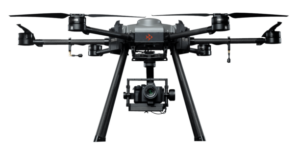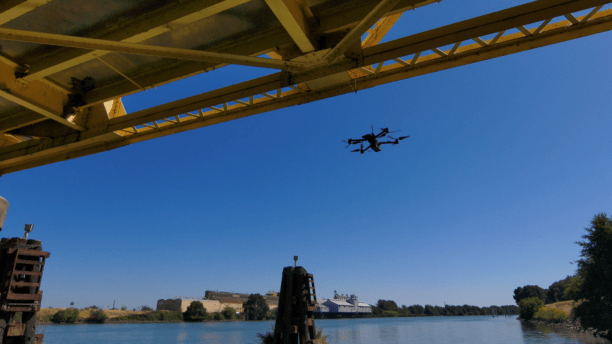
Continue reading below, or listen:
H.R. 3595, introduced by Rep Greg Stanton (D-AZ) and Garret Graves (R-LA), is a reprise of the 2021 H.R. 5315, which passed in the House but did not progress in the Senate last year. The grant supports the drone industry in several ways, not least in the acknowledgement that drone technology offers significant efficiencies for infrastructure inspection. The Act would provide funding for state, local, and tribal governments to purchase or contract for approved drone technology to “perform critical infrastructure inspection, maintenance, rehabilitation, or construction projects,” says a Rep. Stanton press release on H.R. 5315.
“Drones are a common-sense tool to inspect some of the toughest to reach parts of our infrastructure,” said Stanton. “It’s safer, speedier and more sustainable. These grants will go a long way to help state, local and tribal governments invest in this cutting-edge technology and better care for aging infrastructure.”
Additionally, the DIIG Act would provide funding to institutions of higher education, including community colleges, to develop drone workforce training. This aligns with sections of the FAA Reauthorization Act of 2018, which tasked the FAA with creating the UAS Collegiate Training Initiative.
Michael Robbins, Chief Advocacy Officer for the Association for Uncrewed Vehicle Systems International (AUVSI), said the DIIG Act would help the U.S. drone industry remain competitive.
“Drones are being relied on as indispensable tools for critical operations, including infrastructure inspections — and that role will only continue to grow as the technology advances further. The future of aviation leadership is in autonomy, and the United States must invest in supporting the drone industry and growing workforce,” said Robbins. “The DIIG act accomplishes both goals by providing states with grants to funding to acquire and utilize secure drones for infrastructure inspection and to train the workforce to conduct these critical missions.”
“The U.S. cannot afford to fall behind in the drone industry’s ability to attract capital, investment, and workforce,” said Robbins. “Congress should pass this commonsense legislation to help level the playing field for the U.S. drone industry and to encourage the infrastructure and workforce benefits the DIIG ACT would bring to communities nationwide.”
Read more:
- What the U.S. Infrastructure Bill Means for the Drone Industry
- Proposed Senate Amendment Would Prevent Purchase of Chinese-Made Drones with Infrastructure Bill Funding
- US Senate Introduces Drone Infrastructure Inspection Grant Act (DIIG Act)
- Soaring Eagle’s BVLOS Waiver: 27 Linear Miles for Infrastructure Inspection
Miriam McNabb is the Editor-in-Chief of DRONELIFE and CEO of JobForDrones, a professional drone services marketplace, and a fascinated observer of the emerging drone industry and the regulatory environment for drones. Miriam has penned over 3,000 articles focused on the commercial drone space and is an international speaker and recognized figure in the industry. Miriam has a degree from the University of Chicago and over 20 years of experience in high tech sales and marketing for new technologies.
For drone industry consulting or writing, Email Miriam.
TWITTER:@spaldingbarker
Subscribe to DroneLife here.
